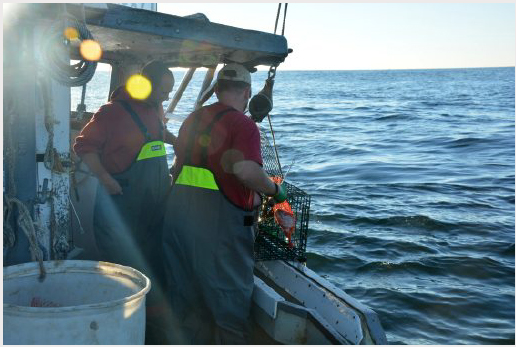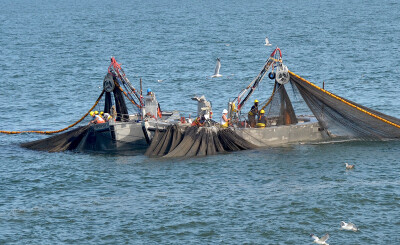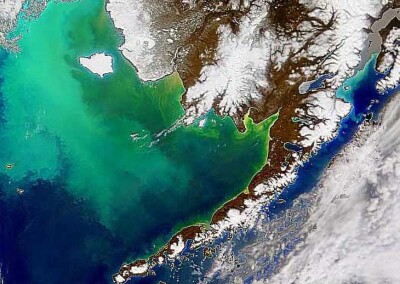Fishing organizations are set to proceed with their suit against the federal government to reopen fishing grounds in New England.
President Obama established the Northeast Canyons and Seamounts National Marine Monument, which included a blanket commercial fishing ban in an area that was already closed to some gear types under the New England Fishery Management Council’s jurisdiction.
 The lawsuit has been held up since April 2017 by a Trump administration review of several national monuments created under the Obama administration. Recent filings at the U.S. District Court for the District of Columbia say the hold was lifted in mid-March.
The lawsuit has been held up since April 2017 by a Trump administration review of several national monuments created under the Obama administration. Recent filings at the U.S. District Court for the District of Columbia say the hold was lifted in mid-March.
The lawsuit argues that Obama never had the authority to establish the monument under the the Antiquities Act, given that the ocean is not “land owned or controlled by the federal government,” as the act stipulates.
In December, Interior Secretary Ryan Zinke recommended making changes to marine national monument policies and proposed shifting the responsibility for controlling fishing within the monument to the regional fishery management councils.
“No president should use the authority under the act to restrict public access, prevent hunting and fishing, burden private land, or eliminate traditional land uses, unless such action is needed to protect the objects,” wrote Zinke in his recommendation.
Since Zinke's official recommendations, no public action has been taken by the administration to address his statement.
Fishing industry leaders involved with the suit are ready to pick up where they left off.
“The Massachusetts Lobstermen’s Association is optimistically encouraged, given the forward movement of the lawsuit,” said Beth Casoni, executive director of The Massachusetts Lobstermen’s Association. "We are hopeful to regain the fishing grounds that were taken away from the fleet and to set a legal precedent through the court that will prevent any further draconian actions against the fleet.”
While lobster and deep-sea red crab fisheries were granted a 7-year grandfather period, all other commercial fishing was banned when the 5,000-square-mile monument was established in order to protect deep-sea corals and vulnerable species like North Atlantic right whales.
"To lose a big area that we have historically fished has quite an impact on quite a lot of people here," Jon Williams, a New Bedford, Mass., crabber and a member of plaintiff group Offshore Lobstermen's Association told the Associated Press.
Members of the plaintiff organizations have stated that they aren't against the protection of at-risk species in the area, but that the entire marine monument designation process excluded the affected fishing industry.
“The things that’s most relevant for us, is that above all, there was a better way to do this,” Greg DiDomenico, executive director of the Garden State Seafood Association told Seafood Source, citing previous work the organization has done to help protect corals in the Mid-Atlantic. "If there’s something that’s worth protecting, let’s talk about it. If we didn’t have a track record of doing the right thing, I’d say ‘Yeah, I get it.’ But we can stand up on what we did in the Mid-Atlantic.”
The federal government is ordered to respond to the suit by April 16.







